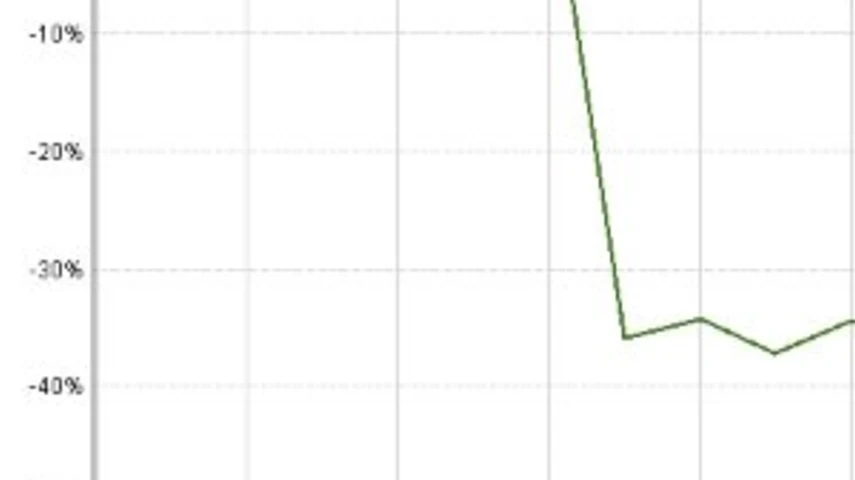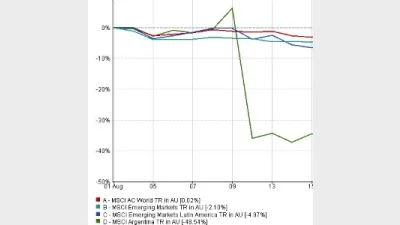EMs dragged down by Argentina



Political fears meant Argentina lost 48% during August, dragging down the wider emerging markets index.
According to Franklin Templeton, Argentina was the worst market globally during the month following President Mauricio Macri’s poor performance in primary elections and fears of a populist victory in October’s elections.
Argentina was recently upgraded by index provider MSCI from a frontier market to emerging market so this recent underperformance would be a difficult issue, there were already questions whether it would be able to maintain its equity market accessibility.
As well as the political problems, the firm said ‘debt re-profiling and imposition of capital controls added to market concerns’ in Argentina.
During August, the MSCI Emerging Markets Latin America index lost 4.9% while the wider MSCI Emerging Markets index lost 2%, according to FE Analytics. The MSCI AC World index, which includes developed markets, was flat with returns of 0.02%.
However, the problems seemed largely contained within Argentina with Mexico being an outperformer with returns of 3.7% over the same period. It was also likely to benefit from the US/China trade war as it was a cheap place for manufacturing if companies were seeking an alternative to China.
“While we expect the volatility in financial markets to continue in the interim amid uncertainty about policies the newly elected administration will pursue, we believe the financials and consumer discretionary sectors remain attractive. Valuations have fallen to attractive levels, while profitability remains high,” said Franklin Templeton.
“Separately, the country’s favourable demographics, which includes a young working population, also helps support consumerism. Moreover, Mexico has done quite well in positioning itself as a manufacturing hub for the United States.”
Latin America suffered during August, underperforming against its global and emerging market peers, with Argentina losing more than 48% during the month.
Recommended for you
A new funds distribution business has launched in Australia, seeking to bring institutional offerings to the wholesale market and led by co-founder of Jamieson Coote Bonds.
Higher interest rates could be on the cards for 2026 after monthly CPI inflation for October showed an increase of 3.8 per cent.
Global actively managed ETF assets hit a record high in October, according to independent research and consultancy firm ETFGI, breaking the record set the previous month.
Federation Asset Management has appointed an investment director and head of responsible investments to support ESG integration strategy across the firm.











